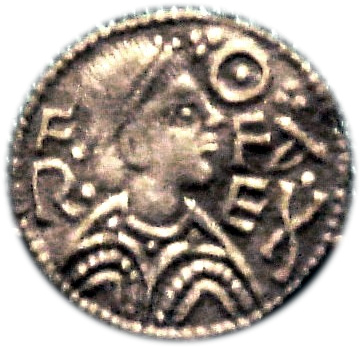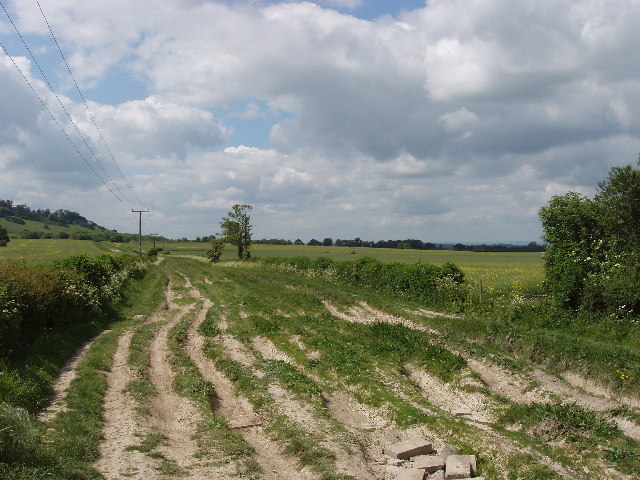|
Icel (person)
The Iclingas (also Iclings or House of Icel) were a dynasty of Kings of Mercia during the 7th and 8th centuries, named for Icel or Icil, great-grandson of Offa of Angel, a legendary or semi-legendary figure of the Migration Period who is described as a descendant of the god Woden by the Anglo-Saxon royal genealogies. Kirby, ''Earliest English Kings'', p. 15. The Iclingas reached the height of their power under Offa of Mercia (r. 757–796), who achieved hegemony over the other Anglo-Saxon states, and proclaimed himself "King of the English", but the dynasty lost control of Mercia soon after his death. Penda, who became king of Mercia in about 626 and is the first king named in the regnal lists of the Anglian collection, and at the same time the last pagan king of Mercia, gave rise to a dynasty that supplied at least eleven kings to the throne of Mercia. Four additional monarchs were given an Icling pedigree in later genealogical sources but are now believed to have ... [...More Info...] [...Related Items...] OR: [Wikipedia] [Google] [Baidu] |
Offa King Of Mercia 757 793 Silver Penny
Offa (died 29 July 796 AD) was King of Mercia, a kingdom of Anglo-Saxon England, from 757 until his death. The son of Thingfrith and a descendant of Eowa, Offa came to the throne after a period of civil war following the assassination of Æthelbald. Offa defeated the other claimant, Beornred. In the early years of Offa's reign, it is likely that he consolidated his control of Midland peoples such as the Hwicce and the Magonsæte. Taking advantage of instability in the kingdom of Kent to establish himself as overlord, Offa also controlled Sussex by 771, though his authority did not remain unchallenged in either territory. In the 780s he extended Mercian Supremacy over most of southern England, allying with Beorhtric of Wessex, who married Offa's daughter Eadburh, and regained complete control of the southeast. He also became the overlord of East Anglia and had King Æthelberht II of East Anglia beheaded in 794, perhaps for rebelling against him. Offa was a Christian king who c ... [...More Info...] [...Related Items...] OR: [Wikipedia] [Google] [Baidu] |
Creoda Of Mercia
Creoda (Cryda or Crida, 6th century) may have been one of the first kings of the Anglo-Saxon kingdom of Mercia, ruling toward the end of the 6th century. Although he is mentioned in a pedigree found in the ''Anglo-Saxon Chronicle'', Creoda is not given the title of king. His existence is disputed by some scholars. Barbara Yorke wrote: "Although it is possible that some kind of regnal list could be the source of the information (though the Worcester lists begin with Penda), these entries could be nothing more than intelligent guesswork based on names derived from Bede and the genealogy of Æthelred, while the dates seem to be influenced by an entry in the Anglo-Saxon Chronicle for the death of a West Saxon Creoda...The surviving sources allow us to say with confidence little more than that the kingdom of Mercia was in existence by the end of the sixth century." Yorke's sentiment is shared by Professor of Medieval History Nicholas Brooks, who wrote: "Despite Professor Davies's ten ... [...More Info...] [...Related Items...] OR: [Wikipedia] [Google] [Baidu] |
Eowa Of Mercia
Eowa (or Eawa) (d. 642) was a son of the Mercian king Pybba and a brother of the Mercian king Penda; he was possibly King of Northern Mercia, as the 8th-century ''Historia Brittonum'' reports that he was co-ruler with his brother Penda. Battle of Maserfield ''Historia Brittonum'', Chapter 65, notes that "endafought the battle of Cocboy, in which fell Eawa, son of Pybba, his brother, king of the Mercians, and Oswald, king of the North-men, and he gained the victory by diabolical agency." The ''Annales Cambriae'' (644) mentions " e battle of Cogfry in which Oswald king of the Northmen and Eawa king of the Mercians fell." These two sources state that Eowa was a king of the Mercians himself at the time of the Battle of Maserfield (or Cogwy), in which he was killed, on August 5 of what was probably the year 642. The later Mercian kings Æthelbald, Offa and Ecgfrith were descended from Eowa; the period of their rule began in 716 following the death of Penda's grandson Ceolred and end ... [...More Info...] [...Related Items...] OR: [Wikipedia] [Google] [Baidu] |
Oswiu
Oswiu, also known as Oswy or Oswig ( ang, Ōswīg; c. 612 – 15 February 670), was King of Bernicia from 642 and of Northumbria from 654 until his death. He is notable for his role at the Synod of Whitby in 664, which ultimately brought the church in Northumbria into conformity with the wider Catholic Church. One of the sons of Æthelfrith of Bernicia, Oswiu became king following the death of his brother Oswald in 642. Unlike Oswald, Oswiu struggled to exert authority over Deira, the other constituent kingdom of medieval Northumbria, for much of his reign. Oswiu and his brothers were raised in exile in the Irish kingdom of Dál Riata in present-day Scotland after their father's death at the hands of Edwin of Deira, only returning after Edwin's death in 633. Oswiu rose to the kingship when his brother Oswald was killed in battle against Penda of Mercia. The early part of his reign was defined by struggles to assert control over Deira and his contentious relationship with Penda ... [...More Info...] [...Related Items...] OR: [Wikipedia] [Google] [Baidu] |
Penda Of Mercia
Penda (died 15 November 655)Manuscript A of the ''Anglo-Saxon Chronicle'' gives the year as 655. Bede also gives the year as 655 and specifies a date, 15 November. R. L. Poole (''Studies in Chronology and History'', 1934) put forward the theory that Bede began his year in September, and consequently November 655 would actually fall in 654; Frank Stenton also dated events accordingly in his ''Anglo-Saxon England'' (1943). 1 Others have accepted Bede's given dates as meaning what they appear to mean, considering Bede's year to have begun on 25 December or 1 January (see S. Wood, 1983: "Bede's Northumbrian dates again"). The historian D. P. Kirby suggested the year 656 as a possibility, alongside 655, in case the dates given by Bede are off by one year (see Kirby's "Bede and Northumbrian Chronology", 1963). The ''Annales Cambriae'' gives the year as 657Annales Cambriae at Fordham University/ref> was a 7th-century king of Mercia, the Anglo-Saxon kingdom in what is today the Midland ... [...More Info...] [...Related Items...] OR: [Wikipedia] [Google] [Baidu] |
Cearl Of Mercia
Cearl (or Ceorl) was an early king of Mercia who ruled during the early part of the 7th century, until about 626. He is the first Mercian king mentioned by Bede in his '' Historia ecclesiastica gentis Anglorum''. Bede was a Northumbrian who was hostile to Mercia, and historian Robin Fleming speculates that as "ceorl" means "rustic" in Old English, his name may have been a joke. Cearl's ancestry is unknown. He is not included in the Mercian royal genealogy; Henry of Huntingdon in the 12th century placed him as ruling after Pybba, saying that he was not Pybba's son but was his kinsman. Bede (2.14) mentions him only in passing, as the father-in-law of Edwin of Deira. According to Bede, Edwin married Cwenburh (Quenberga), daughter of "Cearl, king of the Mercians" while he was in exile, and with her had two sons, Osfrith and Eadfrith. Historians have noted the marriage as evidence for Cearl's independence from the then-Northumbrian king Æthelfrith, since Edwin was Æthelfrith's rival a ... [...More Info...] [...Related Items...] OR: [Wikipedia] [Google] [Baidu] |
Iceni
The Iceni ( , ) or Eceni were a Brittonic tribe of eastern Britain during the Iron Age and early Roman era. Their territory included present-day Norfolk and parts of Suffolk and Cambridgeshire, and bordered the area of the Corieltauvi to the west, and the Catuvellauni and Trinovantes to the south. In the Roman period, their capital was Venta Icenorum at modern-day Caistor St Edmund. Julius Caesar does not mention the Iceni in his account of his invasions of Britain in 55 and 54 BC, though they may be related to the Cenimagni, whom Caesar notes as living north of the River Thames at that time. The Iceni were a significant power in eastern Britain during Claudius' conquest of Britain in AD 43, in which they allied with Rome. Increasing Roman influence on their affairs led to revolt in AD 47, though they remained nominally independent under king Prasutagus until his death around AD 60. Roman encroachment after Prasutagus' death led his wife Boudica to launch a major revolt from 6 ... [...More Info...] [...Related Items...] OR: [Wikipedia] [Google] [Baidu] |
Icknield Way
The Icknield Way is an ancient trackway in southern and eastern England that runs from Norfolk to Wiltshire. It follows the chalk escarpment that includes the Berkshire Downs and Chiltern Hills. Background It is generally said to be, within Great Britain, one of the oldest roads the route of which can still be traced, being one of the few long-distance trackways to have existed before the Romans occupied the country. However, this has been disputed, and the evidence for its being a prehistoric route has been questioned. The name is Celto-British in derivation, and may be named after the Iceni tribe. They may have established this route to permit trade with other parts of the country from their base in East Anglia. It has also been suggested that the road has older prehistoric origins. The name is also said to have been initially used for the part to the west and south (i.e. south of the River Thames) but now refers usually to the track or traces north of the Thames. From an ... [...More Info...] [...Related Items...] OR: [Wikipedia] [Google] [Baidu] |
Ixworth
Ixworth is a village and civil parish in the West Suffolk district of Suffolk, England, north-east of Bury St Edmunds on the A143 road to Diss and south-east of Thetford. The parish had a population of 2,365 at the 2011 Census. History Ixworth was settled by the Romans and was the site of a 1st-century fort.The Willows, Stow Road, Ixworth, Suffolk – Archaeological monitoring and recording Archaeological Solutions Ltd. June 2011. Retrieved 23 January 2013.Ixworth Roman Fort English Heritage. Retrieved 22 January 2013. The fort is believed to have been ... [...More Info...] [...Related Items...] OR: [Wikipedia] [Google] [Baidu] |
Ickleton
Ickleton is a village and civil parish about south of Cambridge in Cambridgeshire, England. The village is beside the River Cam, close to where a southern branch of the Icknield Way crossed the river. The eastern and southern boundaries of the parish form part of the county boundary with Essex, and the Essex town of Saffron Walden is only about southeast of the village. The village is mainly grouped around three streets: Abbey Street, Frogge Street, and Church Street, which leads into Brookhampton Street. The village is at the eastern end of its parish, which extends to the west. Archaeology A Neolithic axe-head has been found in the parish, suggesting a human presence before 2500 BC. About southwest of the village near Valance Farm is a late Bronze Age bowl barrow, close to the supposed route of the pre- Roman Icknield Way. The barrow and its surrounding ditch are well-preserved, about in diameter and high. Other Bronze Age remains found in the parish include a ... [...More Info...] [...Related Items...] OR: [Wikipedia] [Google] [Baidu] |



